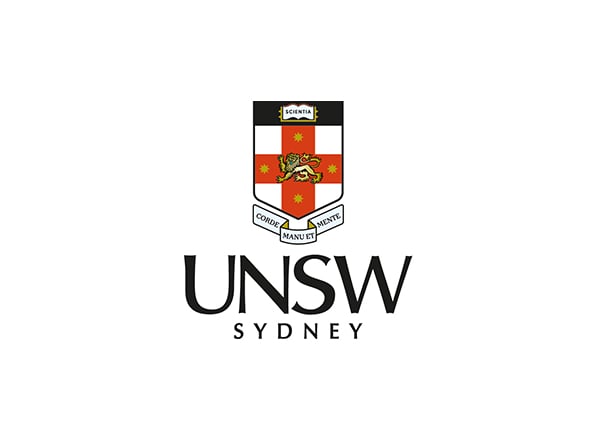Corrosion of Underground Mine Ground Support
Understand the corrosion failure of rockbolts and cable bolts in underground mines, and learn a step-by-step examination procedure to determine the problem and prevent dangerous situations for miners.
Quick facts
| Duration | Delivery | Course Type | Next Intake | PD Hours | Language |
90-minute webinar (+30 minute Q&A) |
100% online |
Digital
|
|
Up to 2 |
English |
Course overview
Mining industries rely heavily on ground support systems to ensure the safety and stability of underground excavations. Corrosion failure of rockbolts and cable bolts in underground mines is a significant concern, as it can result in catastrophic failure of the ground support system, which can lead to dangerous and even fatal situations for the miners.
Mining professionals need to understand the mechanisms of corrosion failure of the bolts to identify the protection methods to avoid incidents.
This Masterclass aims to educate participants on the corrosion failure of rockbolts and cable bolts in underground mines, and provide a step-by-step examination procedure to determine the problem.
The Masterclass is divided into three parts. The first part provides an overview of how corrosion can occur in underground environments, which can lead to catastrophic failure of the bolts. The most common cause of failure, stress corrosion cracking (SCC), will be explained in detail.
The second part of the Masterclass focuses on the role of bacteria in the underground environment in relation to the corrosion failure of bolts. Both aerobic and anaerobic bacteria can cause corrosion, which can lead to the fracture of the bolts.
In the last part of the Masterclass, participants will learn about various protection methods to prevent corrosion failure of bolts. The course will compare conventional galvanising with other coating methods and provide guidance on how to select suitable methods to overcome corrosion in underground environments. This is a must-attend Masterclass for mine engineers and managers responsible for designing and implementing ground support systems.
Delivered in collaboration with AusIMM’s Education Partner, UNSW Sydney.

Recording pricing
Access the recording
Who should attend?
- Mine engineers and managers responsible for designing and implementing ground support systems.
- Geotechnical engineers involved in the design and analysis of underground excavations.
- Maintenance and inspection personnel responsible for monitoring and maintaining ground support systems.
- Health and safety professionals responsible for ensuring safe working conditions for miners.
Corrosion failure of rockbolts can result in catastrophic failure of the ground support system, which can lead to dangerous and even fatal situations for the miners. The above personnel need to understand the mechanisms of corrosion failure of the bolts to identify the protection methods to avoid the incident.
Learning outcomes
- Identify and manage the risk of corrosion failure in your mining operations
- Learn how to design and implement effective ground support systems, monitor and maintain the system, and ensure the safety of workers.
- A unique opportunity to network with other mining professionals and share the best ground support system design and maintenance practices.
- Gain an in-depth understanding of the mechanisms of corrosion failure of bolts in underground mines and how to select the protection methods.
- Improve the safety of the working environment in the mining industry and prevent accidents and fatalities.
- Identify and mitigate the risks associated with corrosion failure of ground support systems, which can prevent costly repairs, downtime, and lost production.
These skills will make you more valuable to your employer and support the advancement of your career in the mining industry.
Course structure
This masterclass will be delivered via a 90-minute live webinar (+ 30 minute Q&A session) and will be supported by resources on AusIMM’s Learning Management System.
The webinar session will be recorded and available within 24 hours for participants unable to attend.
Facilitators
Prof Serkan Saydam
Professor Saydam is the High-Level Advisory Board Member of EU funded illuMINEation Project and the Advisory Board Member of 7Sisters Mission, the first Australian Mission for Moon. He is also the inventor of the Virtual Mine – ViMINE mining engineering game which his used in more than 80 universities worldwide.
Serkan has received multiple academic awards including 2020 UNSW Dean’s Award for Global Impact, 2019 UNSW Vice Chancellor’s Postgraduate Research Supervision Award and 2017 Society of Mining Professors’ International Tim Shaw Innovation in Teaching Award. He is a Fellow of the AusIMM; President of the ISRM Commission on Planetary Rock Mechanics; Deputy Director of the Australian Centre for Space Engineering Research (ACSER) at UNSW; Deputy Secretary General and Council Member of the SOMP (The Society of Mining Professors).
Honghao Chen
UNSW Sydney
Frequently asked questions
What are the technical requirements to participate in the course? i.e. do I need a webcam, microphone, etc?
The course will be run entirely online via a cloud-based Learning Management System (LMS) which can be accessed via computer, tablet or phone. Participants will simply need to have a working Internet connection and a computer, tablet or phone with sound to access the course. The live webinars will be hosted on Zoom and participants may choose to download this application to their computers or devices; however, this is an optional download and attendance via an internet browser is also enabled. Participants will not be required to have access to a webcam or microphone.
How long will the course take?
The full course is estimated to take about 3 hours of learning. Participants will have access to the course platform for three weeks.
Will the course be delivered in other languages?
At the moment, the course will only be delivered in English.
Does someone have to have a prequalification of years’ experience before they can do the course?
No pre-qualification needed but the course is aimed at mining professionals who have a certain level of working experience and knowledge.
How many PD hours do I receive for undertaking the course?
Participants can earn professional development (PD) hours for undertaking the course. One contact hour of technical content is equivalent to one PD hour.

